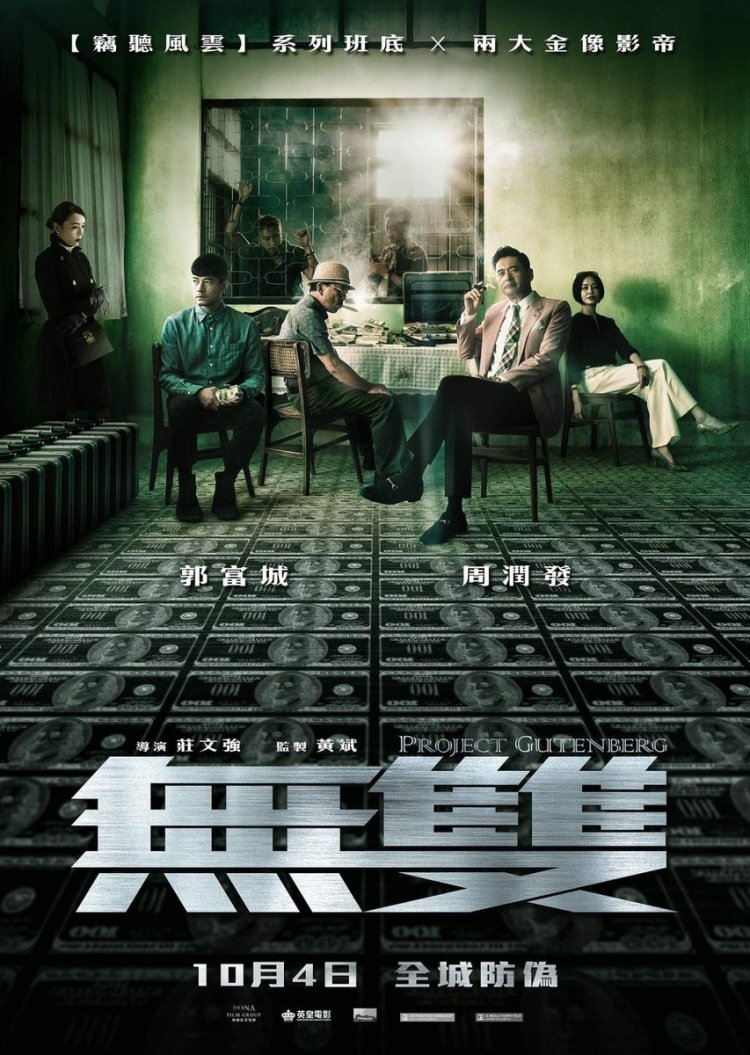 Erik Matti follows Richard V. Somes We Will not Die Tonight with another retro exploitation action fest starring a plucky female lead which turns darker than anyone could have imagined. BuyBust is, on the surface, a gritty B-movie filled with ultra violence and relentless bloodshed, but it’s also the latest in a long line of movies to examine the ongoing legacy of the “War on Drugs” in Duterte’s increasingly hardline Philippines.
Erik Matti follows Richard V. Somes We Will not Die Tonight with another retro exploitation action fest starring a plucky female lead which turns darker than anyone could have imagined. BuyBust is, on the surface, a gritty B-movie filled with ultra violence and relentless bloodshed, but it’s also the latest in a long line of movies to examine the ongoing legacy of the “War on Drugs” in Duterte’s increasingly hardline Philippines.
Our heroine, Manigan (played by very deglammed rom-com star Anne Cutis), is the sole survivor of an armed police squad whose comrades were all wiped out during an operation led by police Lieutenant Dela Cruz (Lao Rodriguez). Regarded as bad luck, she’s only recently been able to find a new squad to join but thanks to her experiences, is struggling to find team spirit when she knows out in the field it might be every man for himself. She is dismayed to realise that her first mission will once again be led by Dela Cruz who has picked up a low-level trafficker, Teban (Alex Calleja), in the hope of luring local drug lord Biggie Chen (Arjo Atayde). When the meet goes South, Teban is summoned to Chen’s lair deep in the Gracia ni Maria slums where all hell breaks loose once the team are spotted and targeted for eradication by Chen’s henchman Chongki (Levi Ignacio).
Though one might assume the police to be the “good guys” – after all, we came here with them, they are in a sense the invaders wading into totally unfamiliar territory where they perhaps have no right to be. The slums are a maze and deliberately so – the confusing environs are a perfect foil for outsiders and the police are indeed quickly lost with no clear idea of how to find their way out. Inhabited by the poorest of the poor, it’s difficult not to come to the conclusion that this land and the people within it have been largely left behind, forgotten by the surrounding city which regards this makeshift community as little more than a living graveyard. The police certainly have little sympathy for the ordinary residents whom they regard as tainted by association, thinking of the slums as a land of wilful lawlessness existing in direct opposition to their need for order.
The locals are well and truly fed up with both sides. They don’t have anything to do with drugs but are frequently caught in the crossfire. Creeping into the slums, the police pass a vigil for a little girl killed during a previous incursion in a literal murder of innocence caused by the internecine battle between law enforcement and drug traffickers. When the trouble starts the locals rise up in an act of revolution, wanting an end once and for all to the violence on their streets which has already taken from them sons, husbands, and little children. They are as angry with the police who refuse to protect them as they are with the drug dealers who endanger their lives by refusing to take their illegal trade somewhere less populated.
Manigan and her squad are law enforcement, but they are also a part of the ongoing extra judicial killings and it’s clear their tactics go well beyond self defence. Cornered, a prominent drug dealer taunts Manigan with her own side’s complicity – something of which she is painfully aware in having figured out that her previous squad were almost certainly betrayed by Dela Cruz whose relationships with his targets seem overly incestuous. Drug raids have become an industry in their own right. Not just the bounties on extra judicial killings, but the ransoms and kick backs corrupt officers accept in order to continue facilitating the drug trade. Actually arresting drug dealers would be financially disastrous for them, and so there are huge vested interests in protecting an illicit conspiracy of corrupt police even if it means sacrificing a few foot soldiers for the cause.
Matti keeps the tension high and the action furious as his hand held camera follows the extremely complex choreography through long takes across tin roofs and through narrow passages filled with seemingly endless supplies of angry aggressors. An infinitely compromised figure, Manigan wants to survive and then to expose the corruption in her own organisation but her fight will be a hard one. A gritty, old fashioned exploitation B-movie, BuyBust reserves its sympathy not for the heroine but for the ordinary men and women of the streets whose fight for survival is daily in a world which is becoming ever more hostile to their very existence.
Screened at London East Asia Festival 2018. Currently streaming on Netflix UK (and possibly other territories)
Original trailer (English subtitles)












